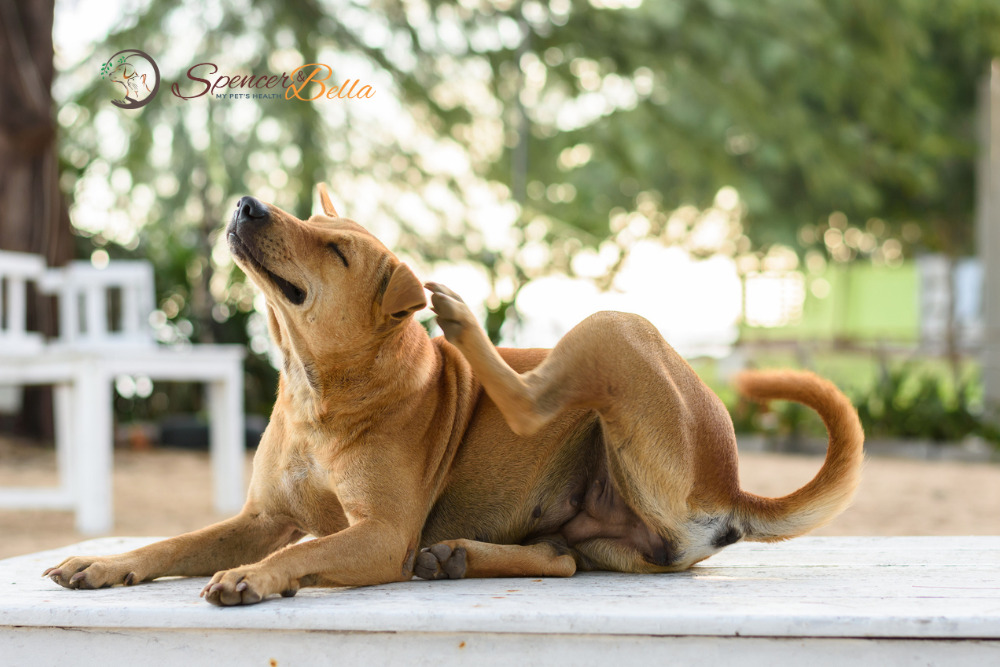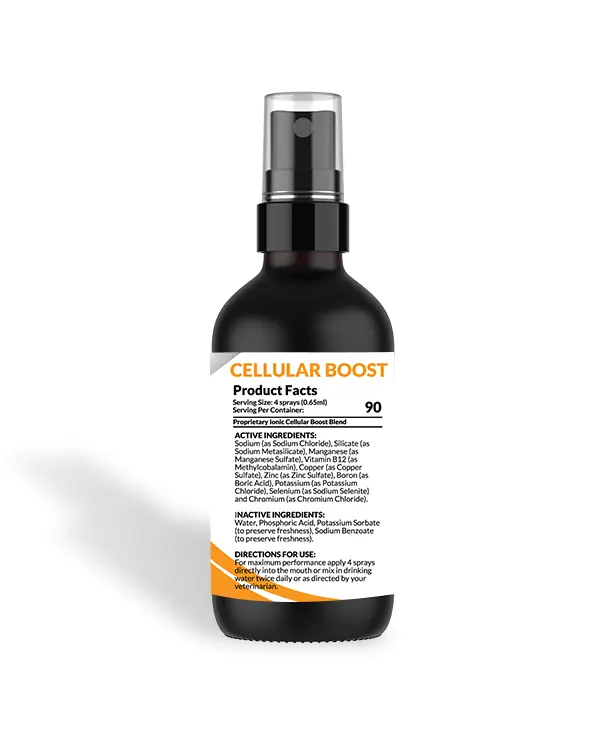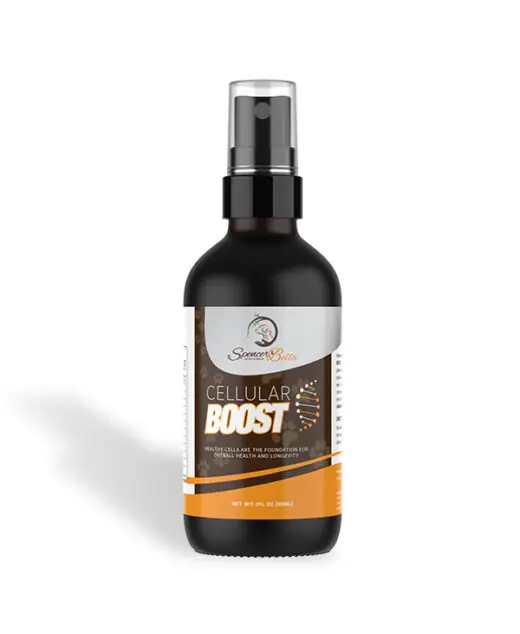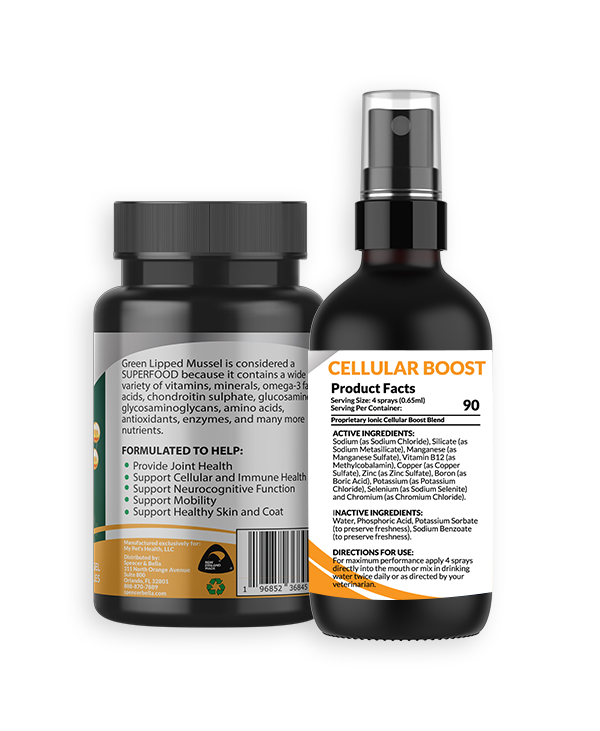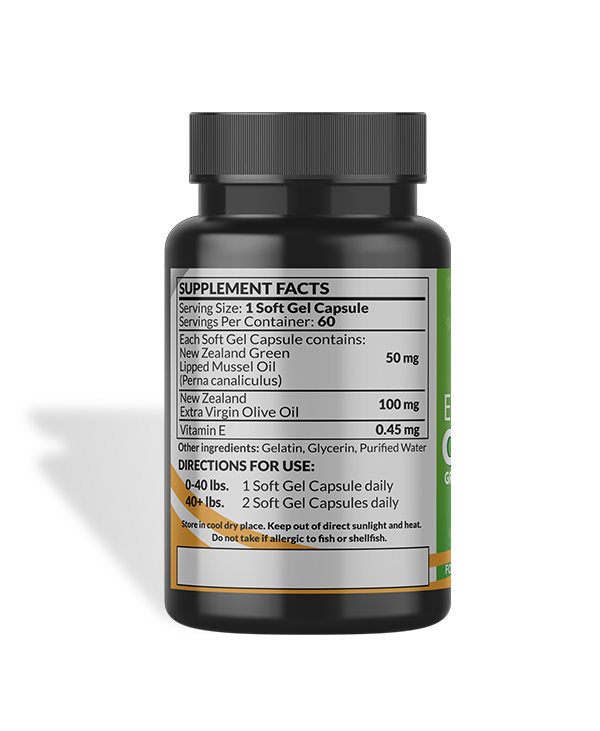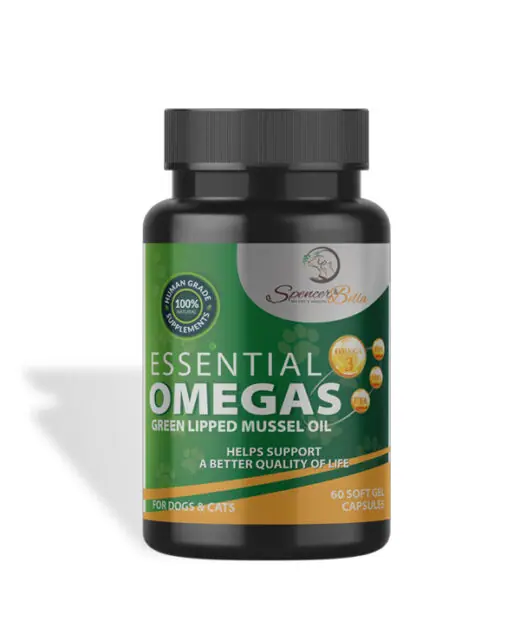As a dedicated pet owner, witnessing your beloved canine companion incessantly scratching, biting, and suffering from skin irritations can be distressing. Itchiness in dogs is a common issue that can stem from various causes, ranging from allergies to parasites. In this comprehensive guide, we will delve into the world of dog itchiness, providing insights, solutions, and home remedies to help your furry friend find relief and regain their comfort.
Itchiness or Pruritus in Dogs: What Causes It?
Itchiness, or pruritus, is a discomforting sensation that can be caused by a multitude of factors. From allergies to insect bites, skin infections to underlying health conditions, your dog’s itchiness could be attributed to various causes. Common culprits include:
- Allergies: Just like humans, dogs can develop allergies to certain foods, environmental triggers (pollen, dust mites), or materials (such as certain fabrics).
- Parasites: Fleas, ticks, and mites can infest your dog’s skin, leading to relentless scratching and discomfort.
- Skin Infections: Bacterial or fungal infections can result in itchy and inflamed skin.
- Underlying Health Conditions: Issues like hypothyroidism or Cushing’s disease can manifest in skin problems and itchiness.
What is Hypothyroidism and Cushing’s disease?
Hypothyroidism: This refers to an underactive thyroid gland, which can lead to various health problems in dogs, including changes in coat quality, skin dryness, and itchiness. It is caused by insufficient production of thyroid hormones, resulting in metabolic imbalances.
Cushing’s Disease: Also known as hyperadrenocorticism, this condition emerges when a dog’s body produces excessive levels of cortisol, a stress hormone. Among its symptoms are skin-related issues, including thinning skin, hair loss, and heightened itchiness.
My Dog is Constantly Scratching and Biting Himself: What Should I Do?
If your furry friend is caught in a relentless cycle of scratching and biting, it is a clear sign that something is amiss. Their discomfort could be attributed to a range of factors, and as a responsible pet owner, it is crucial to take prompt action to alleviate their distress.
Examine Their Skin
Start by carefully examining your dog’s skin. Look for any telltale signs of irritation, such as redness, inflammation, or visible sores. Pay close attention to areas where the dog constantly scratching itself is concentrated. This inspection can offer valuable clues about the root cause of their itchiness.
Regular Grooming and Bathing
Regular grooming sessions can work wonders in providing relief to your dog. Brushing their coat helps remove dirt, debris, and loose fur that might be contributing to their discomfort. Bathing, when done using a mild dog-friendly shampoo, can help cleanse their skin and soothe itchiness. However, be cautious not to over-bathe them, as excessive bathing can strip their skin of natural oils.
Dietary Considerations
The adage “you are what you eat” applies to dogs as well. A balanced and nourishing diet plays a pivotal role in maintaining healthy skin. Opt for high-quality dog food that is rich in essential nutrients, especially omega-3 fatty acids. These fatty acids are renowned for their anti-inflammatory properties and can contribute to healthier skin and a shinier coat.
Consult Your Vet
While home remedies and lifestyle adjustments can offer relief, it is wise to seek professional guidance. Schedule a visit to your veterinarian to accurately diagnose the cause of your dog’s persistent itchiness. Vets have the expertise to identify underlying issues, whether they are related to allergies, infections, or other medical conditions. Based on the diagnosis, they can recommend a tailored treatment plan to address the root cause.
Addressing Allergies
If allergies are suspected, your vet might recommend allergy testing to pinpoint specific triggers. Allergy shots or medications can be prescribed to manage allergic reactions effectively.
Prescribed Medications
In cases where the itchiness is caused by infections or other medical conditions, your vet might prescribe medications, such as antibiotics or antifungal treatments, to tackle the underlying issue.
Preventing Further Irritation
During your dog’s recovery, it is essential to prevent them from worsening their condition through excessive scratching or biting. To prevent self-inflicted wounds, you might need to use an Elizabethan collar (often referred to as a “cone of shame”) to restrict their access to the affected areas temporarily.
When Your Dog Keeps Scratching His Ear: From Ear Infections to Other Triggers
The act of incessantly scratching ears could be a telltale sign of an ear infection, a prevalent affliction among dogs. Nonetheless, it is imperative to acknowledge that dog scratching ear may stem from a diverse range of triggers. Beyond infections, allergies to specific foods, pollen, or environmental elements can also induce itchiness. Furthermore, foreign objects lodged within the ear, like grass seeds, and the presence of ear mites can evoke discomfort. Prompt consultation with a veterinarian remains pivotal for comprehending the root cause of the scratching and devising a fitting treatment strategy. Veterinarians possess the expertise to conduct requisite tests, ensuring precise diagnosis, and proffering efficacious solutions to enhance your dog’s comfort and overall well-being.
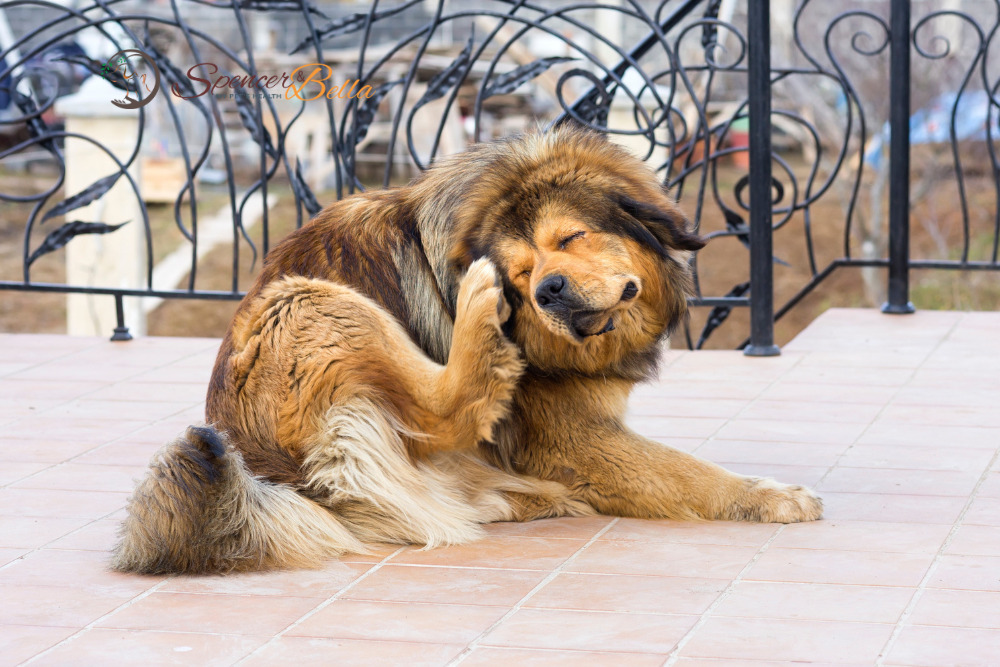
Ear Infections: An Unwelcome Visitor
Ear infections are a common culprit when it comes to ear scratching in dogs. The warm and humid environment within a dog’s ear can become a breeding ground for bacteria or yeast, leading to infections. Signs of an ear infection include:
- Redness: Inflamed skin within the ear can indicate an ongoing infection.
- Foul Odor: A pungent smell emanating from the ear can signal a problem.
- Discharge: Yellowish, brownish, or bloody discharge could be a sign that something is amiss.
Allergies: The Culprits Behind the Itch
Like humans, dogs can experience allergies too. Pollen, dust mites, certain foods, and even chemicals can trigger allergic reactions. If your dog is scratching their ear along with other allergic symptoms like sneezing, watery eyes, or skin rashes, allergies could be to blame.
Foreign Intruders: The Unexpected Woes
Dogs are known for their curious nature, and sometimes, foreign objects can find their way into their ears. Seeds, small plant fragments, or even debris from outdoor adventures can become lodged, causing discomfort, and prompting your dog to scratch. If you suspect a foreign object, it is essential not to attempt to remove it yourself. Instead, seek professional help to avoid causing further harm.
Taking Action: Steps to Alleviate Discomfort
When confronted with a dog scratching their ear incessantly, it is essential to take decisive steps:
- Thorough Examination: Gently inspect your dog’s ear. Look for signs of inflammation, swelling, or any unusual discharge.
- Keep it Clean: Employ a mild, dog-specific ear cleaner to remove accumulated dirt and wax. Never resort to cotton swabs, as they can lead to more harm than good.
- Consult a veterinarian: If the scratching persists or if any of the aforementioned signs are present, consult a veterinarian. They possess the expertise to conduct a comprehensive examination and recommend suitable treatments.
Prevention: The Key to Long-Term Well-Being
Proactive measures can significantly reduce the likelihood of ear-related issues:
- Regular Ear Maintenance: Incorporate regular ear cleaning into your dog’s grooming routine. This practice helps prevent the buildup of dirt and wax, which can contribute to problems.
- Thorough Drying: After water activities, ensure your dog’s ears are thoroughly dried. Excess moisture can create an environment conducive to infections.
- Nourishing Diet: Providing your dog with a balanced, nutrient-rich diet contributes to overall health, including their immune system’s ability to fend off ear-related problems.
Itch Relief for Dogs: Commercial Products
When your furry companion is plagued by relentless itchiness, finding effective relief becomes a top priority. Fortunately, the market offers a range of commercial products specially formulated to soothe your dog’s discomfort. From medicated shampoos to anti-itch sprays and even specialized diets, these solutions hold the promise of providing your pet with much-needed respite. This section delves into the world of these products, guiding you through their benefits and helping you make an informed choice for your loyal companion.
Medicated Shampoos: A Bath-Time Savior
Medicated shampoos are a popular choice for tackling your dog’s itchiness head-on. These shampoos are infused with ingredients that target the underlying causes of itchiness, whether they are related to allergies, infections, or other skin issues. They work by cleansing the skin, soothing irritation, and promoting healing. When selecting a medicated shampoo, look for ingredients like oatmeal, aloe vera, or even hydrocortisone. It is essential to follow the instructions carefully and consult your veterinarian before incorporating these shampoos into your dog’s routine.
Anti-Itch Sprays: Quick and Targeted Relief
Anti-itch sprays are like a magical elixir for your dog’s irritated skin. These sprays offer quick and targeted relief by delivering soothing ingredients directly to the affected areas. They often contain natural ingredients like chamomile, tea tree oil, and calendula, known for their anti-inflammatory and calming properties. Anti-itch sprays provide an immediate solution to your dog’s discomfort and are particularly handy for spot treatments. However, as with any product, it is crucial to do a patch test and seek your vet’s advice before widespread use.
Hypoallergenic Diets: A Nutritional Approach
Sometimes, the key to alleviating your dog’s itchiness lies in their diet. Hypoallergenic diets are formulated to minimize allergenic ingredients, making them an excellent choice for dogs prone to allergies. These specialized diets often feature novel protein sources and easily digestible carbohydrates to reduce the risk of triggering allergic reactions. Consult your vet before making any changes to your dog’s diet, as they can recommend the most suitable hypoallergenic options based on your pet’s specific needs.
Hair Loss in Dogs with No Itching: Unraveling the Mystery
When your furry friend starts experiencing hair loss, it can be both puzzling and concerning—especially when itching does not seem to be a factor. The absence of itching does not mean there is not an underlying issue at play. This article delves into the enigma of hair loss in dogs without itching, shedding light on potential causes and emphasizing the importance of seeking professional guidance for proper diagnosis and treatment.
Hormonal Imbalances: The Silent Culprits
Hormones play a crucial role in your dog’s overall health, including the condition of their coat. Hormonal imbalances, such as those associated with thyroid problems or Cushing’s disease, can lead to hair loss. These imbalances disrupt the natural growth cycle of your dog’s hair follicles, resulting in thinning or bald patches. A veterinarian’s expertise is essential for diagnosing these imbalances through blood tests and recommending appropriate treatments.
Allergies: A Surprising Connection
While itching often accompanies hair loss, some dogs experience hair loss due to allergies without exhibiting the telltale scratching. Allergies can disrupt your dog’s skin health, leading to hair loss as a secondary effect. Food allergies can manifest in this manner. Your veterinarian can perform allergy tests to pinpoint potential triggers and help you navigate dietary adjustments or other treatments.
Behavioral Issues: The Psychological Angle
Believe it or not, psychological factors can contribute to hair loss in dogs. Excessive licking, biting, or chewing of certain areas can result in what’s known as “psychogenic alopecia.” This behavior is often linked to stress, anxiety, or boredom. While the absence of itching might seem contradictory, the repetitive actions can still lead to hair loss. Identifying and addressing the underlying behavioral issue, often with the help of a veterinarian or animal behaviorist, is essential for resolution.
The Veterinarian’s Role: Diagnosis and Treatment
The complexity of hair loss without itching underscores the need for professional intervention. A veterinarian’s expertise is invaluable in unraveling the mystery. Here is how they can help:
- Thorough Examination: A veterinarian will conduct a comprehensive physical examination of your dog, paying close attention to the affected areas and evaluating overall health.
- Diagnostic Tests: Depending on their findings, your vet might recommend blood tests, skin biopsies, or allergy tests to pinpoint the cause of hair loss.
- Treatment Recommendations: Once the cause is determined, your vet will tailor a treatment plan that addresses the underlying issue. This could include medications, dietary adjustments, hormone therapies, or behavioral interventions.
Dog Food for Skin Allergies: Nourishing Your Pup’s Skin
When your furry companion battles skin allergies, their discomfort can be distressing for both of you. However, there is a crucial ally in your quest to alleviate their symptoms: their diet. Choosing the right dog food can make a significant difference in managing skin allergies and promoting overall well-being. This section explores the key considerations when selecting dog food for skin allergies, with a focus on the role of omega-3 fatty acids in nurturing healthy skin.
The Power of Nutrition in Skin Health
Just as our diet affects our health, the food your dog consumes plays a pivotal role in their skin’s condition. Skin allergies can manifest as itchiness, redness, rashes, and more. Optimal nutrition can go a long way in mitigating these issues and enhancing your pup’s quality of life.
When perusing the array of dog food options, keep an eye out for formulas rich in omega-3 fatty acids. These essential fats are renowned for their anti-inflammatory properties, making them a potent remedy for skin allergies. Omega-3s work by reducing the inflammation that triggers many allergic reactions, thereby alleviating itchiness and promoting healthy skin.
The Role of Omega-3s in Allergy Management
Omega-3 fatty acids offer a multi-faceted approach to managing skin allergies:
Inflammation Reduction: Calming the Storm
Allergic reactions often trigger inflammation, leading to discomfort for your beloved dog. Omega-3s emerge as natural inflammation fighters, swooping in to soothe the body’s immune response. By curbing inflammation, these essential fatty acids alleviate itching and redness, offering your pup relief from the storm within.
Skin Barrier Enhancement: Shielding from Allergens
A robust skin barrier acts as a shield, preventing allergens from infiltrating and provoking reactions. Omega-3s play the role of armorers here, fortifying the skin’s defenses. A fortified barrier means fewer allergens penetrating the skin’s defenses, translating to reduced allergic flare-ups.
Healthy Coat: From Lackluster to Lustrous
Beyond tending to the skin, omega-3s extend their magic to your dog’s coat. Picture a soft, lustrous coat that begs to be petted. Omega-3s contribute to coat health, turning lackluster fur into a thing of beauty. As your dog’s skin heals, their coat follows suit, radiating health and vitality.
Taking it Up a Notch with Essential OMEGAS
Essential OMEGAS takes the power of omega-3s to a new level. With over 30 different omega-3 varieties, including EPA, DHA, and ETA, this supplement is a testament to the pinnacle of quality. This all-natural formula is meticulously crafted to provide your pet with the finest omega-3s for comprehensive well-being.
My Dog is Itching and Losing Hair but No Fleas: Exploring Other Causes
The enigma of a dog incessantly scratching and experiencing hair loss, without the telltale presence of fleas, presents a perplexing puzzle for pet owners. Fleas may often take the blame, but when they are ruled out, it is time to delve into the realm of alternative culprits. This section takes you on a journey through the potential causes behind your dog’s discomfort, shedding light on yeast infections, hormonal imbalances, and stress as potential factors. Emphasizing the importance of consulting a veterinarian for professional guidance. This ensures clarity and effective solutions when dealing with the intricate puzzle of symptoms.
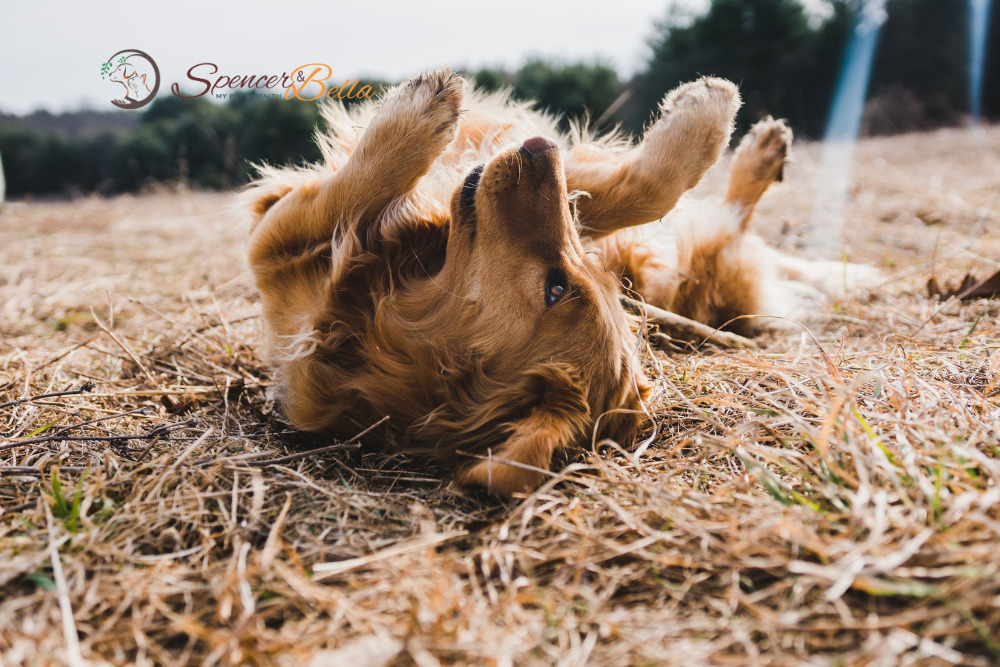
Unraveling the Flea-Free Puzzle
When your diligent efforts reveal no sign of fleas, it is akin to eliminating the most obvious suspect in a mystery. Yet, the mystery remains. The focus shifts to uncovering the hidden causes that might be triggering your dog’s incessant itching and hair loss.
Yeast Infections: A Stealthy Aggressor
Yeast infections are akin to silent saboteurs of skin health. Thriving in warm and damp conditions, these infections can lead to itchiness, redness, and hair loss. Areas like your dog’s ears, paws, and skin folds become prime targets for yeast overgrowth. If a peculiar musty odor accompanies the symptoms, yeast infections might be the undercover cause behind your dog’s discomfort.
Hormonal Imbalances: The Intricate Web
The intricate web of hormones orchestrates numerous bodily functions, including the condition of your dog’s skin and coat. Hormonal imbalances, such as disruptions in thyroid or cortisol levels, can initiate a cascade of effects that manifest as hair loss and skin woes. These imbalances disrupt the natural hair growth cycle, resulting in patches of thinning fur. A professional diagnosis from a veterinarian is essential to unravel this complex web and chart a course of treatment.
The Vet’s Compass: Navigating to Clarity
Amid these potential causes, your veterinarian stands like a compass, guiding you toward clarity amidst the complexities. Here is why consulting a vet is pivotal:
- Accurate Diagnosis: A veterinarian’s trained eye and diagnostic tools can pinpoint the exact cause of your dog’s symptoms.
- Customized Treatment: Armed with an accurate diagnosis, a vet can tailor a treatment plan that aligns with your dog’s unique condition.
- Preventive Measures: Beyond treatment, veterinarians can also offer insights into preventive measures to ensure your dog’s ongoing skin and coat health.
Natural Home Remedies for Dog Skin Allergies and Itchiness:
When your furry companions find themselves ensnared by the relentless grip of skin allergies, turning to the soothing embrace of natural remedies can prove transformative. Within this section, we unveil a trio of proven and tested home remedies, each offering respite from the ceaseless itching and discomfort that accompanies skin allergies. From the gentle touch of apple cider vinegar to the anti-inflammatory properties of eucalyptus oil and the healing balm of aloe vera gel, these remedies have solidified their position as beloved choices among pet owners striving to alleviate their cherished companions’ distress.
Apple Cider Vinegar: Nature’s Elixir for Itch Relief
The magic of apple cider vinegar is not limited to human kitchens—it extends to your dog’s skin too. Diluting apple cider vinegar with water creates a potent topical solution that gently tackles itching. The natural properties of apple cider vinegar work to balance pH levels on the skin’s surface, offering relief from irritation. Remember to dilute it adequately to prevent any discomfort.
Eucalyptus Oil: A Whisper of Relief
Eucalyptus oil is not just a fragrance; it is a natural remedy with anti-inflammatory powers. When blended with a carrier oil to ensure safety, eucalyptus oil can be applied sparingly to your dog’s skin. Its gentle touch can alleviate redness and soothe irritated skin. Always exercise caution with essential oils, as dogs’ skin is sensitive. Consult your veterinarian before introducing eucalyptus oil into your dog’s routine.
Aloe Vera Gel: Nature’s Balm
Aloe vera’s reputation as a soothing balm for human skin extends to your dog as well. The gel from this succulent plant holds a treasure trove of anti-inflammatory and healing properties. When applied to irritated skin, aloe vera gel can offer respite from the relentless itchiness. Choose pure, natural aloe vera gel without added chemicals for the best results.
Oatmeal Baths, Coconut Oil, and Epsom Salt Soaks: A Trio of Natural Solutions
Providing relief for your dog’s itchiness does not always require medication. Alongside the tried and tested remedies mentioned above, there are additional home solutions that can alleviate their discomfort naturally.
Oatmeal Baths:
The Oatmeal is not just a breakfast staple; it is also a soothing remedy for itchy skin. Oatmeal boasts anti-inflammatory properties that can provide relief to your dog’s irritated skin. To create an oatmeal bath, follow these steps:
- Grind plain, unflavored oatmeal into a fine powder.
- Add the oatmeal powder to a lukewarm bath. Make sure the water is not too hot, as that can exacerbate the itchiness.
- Gently mix the water to ensure the oatmeal is evenly distributed.
- Allow your dog to soak in the oatmeal-infused water for about 10-15 minutes.
- The oatmeal bath can help calm inflamed skin and reduce itching. After the bath, pat your dog dry with a clean towel.
Coconut Oil:
Coconut oil is a versatile remedy known for its various health benefits, including moisturizing dry and irritated skin. When applied topically, coconut oil forms a protective barrier that locks in moisture and prevents further irritation. Learn how to apply coconut oil to your dog’s irritated skin:
- Ensure the coconut oil is in liquid form, which can be achieved by gently warming it.
- Apply a small amount of coconut oil to your hands and rub them together to evenly distribute the oil.
- Gently massage the coconut oil onto the areas of your dog’s skin that are most affected by itchiness.
Keep in mind that while coconut oil is generally safe, some dogs might be sensitive to it.
Epsom Salt Soaks:
The Epsom salt, also known as magnesium sulfate, can work wonders in alleviating itchiness and promoting healing. Epsom salt has both anti-inflammatory and antimicrobial properties, making it an effective natural remedy. Here is how to give your dog an Epsom salt soak:
- Dissolve a small amount of Epsom salt in warm water. Be sure the water is comfortably warm and not hot.
- Gently place your dog in the Epsom salt-infused water and let them soak for about 10-15 minutes.
- Gently pat your dog dry with a towel after the soak.
The Epsom salt soak can help soothe irritated skin and reduce inflammation. It is particularly beneficial for dogs with minor skin irritations, rashes, or discomfort.
Guidelines for Safe Application
As you integrate these home remedies into your dog’s wellness routine, remember the following:
- Dilution Matters: Always dilute substances like apple cider vinegar and essential oils with water or carrier oils. Concentrated forms can cause discomfort.
- Patch Test: Before widespread application, perform a patch test on a small area of your dog’s skin to ensure there is no adverse reaction.
- Consult Your Vet: Your veterinarian’s guidance is crucial, especially when introducing new substances to your dog’s routine. They can provide insights on safety and potential interactions.
Skin Irritation on Dogs: Prevention and Care
Preventing skin irritation involves a multi-faceted approach. Regular hygiene practices, such as bathing with suitable dog-friendly shampoos, can help maintain a clean coat and reduce the risk of irritants accumulating on the skin. Using grooming products formulated for your dog’s specific needs, like those designed for sensitive skin, can further prevent irritation. Additionally, keeping an eye out for any signs of discomfort, such as excessive scratching or redness, and addressing them promptly can prevent minor irritations from developing into more serious issues. Regular check-ups with a veterinarian are essential, as they can identify underlying health problems that might contribute to skin irritation and offer guidance on proper care.
Best Oil for Dogs Itchy Skin: Exploring Options
When it comes to soothing itchy skin, several natural oils are often recommended. Coconut oil, olive oil, and fish oil contain properties that can help alleviate inflammation and provide relief. Coconut oil’s antimicrobial and moisturizing qualities make it a popular choice. Olive oil’s moisturization benefits extend to dry skin, while fish oil’s omega-3 fatty acids contribute to overall skin health. Before using any oil, consult your veterinarian to ensure it is suitable for your dog’s specific needs. Proper application and dosage are essential to prevent any adverse reactions.
Dog Dry Skin Home Remedy Olive Oil: Natural Moisturization
Dry skin in dogs can cause discomfort and itching. As a natural moisturization option, olive oil can help alleviate dryness and provide relief. Gently massaging a small amount of olive oil onto your dog’s skin can help restore moisture and soothe irritation. However, moderation is key. Excessive use of oil can lead to greasiness or attract dirt. It is advisable to consult your veterinarian before trying any home remedy, especially if your dog has underlying skin conditions. Moreover, your veterinarian can offer guidance on proper usage and ensure that the remedy aligns with your dog’s specific needs.
Coconut Oil for Dogs Itchy Skin: A Tropical Solution
Coconut oil’s versatile properties make it a popular choice for addressing itchy skin in dogs. Its moisturizing and anti-inflammatory effects can provide relief from discomfort. Applying a small amount of coconut oil to the affected areas can help soothe irritation and promote healthier skin. However, it is important to note that coconut oil may not be suitable for all dogs, especially those with certain allergies or sensitivities. For more information, consult your veterinarian before using coconut oil to ensure it is an appropriate solution for your dog’s specific situation.
Best Dog Food for Dogs with Skin Allergies: Nourishment Matters
Addressing skin allergies in dogs goes beyond topical treatments; it involves dietary considerations as well. Choosing the best dog food for dogs with skin allergies requires opting for hypoallergenic options with limited ingredients. These specialized formulas are designed to minimize the risk of triggering allergic reactions. Ingredients like novel protein sources (e.g., venison, duck) and carbohydrate sources (e.g., sweet potato, peas) are commonly used in hypoallergenic diets. Moreover, consult with your veterinarian to determine the most suitable diet for your dog’s specific allergies and nutritional needs.
FAQs
Q: Is Itchiness Common in Dogs?
A: Yes, itchiness is a common issue in dogs. Numerous factors such as allergies, parasites, skin infections, or underlying health conditions can contribute to itchiness in dogs.
Q: My Dog Keeps Scratching His Ears should I be concerned?
A: Persistent dog scratching ear behavior in your canine companion serves as a clear indicator that something might be amiss. Just as humans communicate discomfort, dogs’ resort to scratching as a means of expressing their distress.
Q: Can I Use Human Shampoo on My Itchy Dog?
A: A: Using human shampoo on your dog is not advisable. Dogs have distinct skin pH levels that differ from humans, and utilizing human shampoos can disturb their skin’s innate equilibrium. This disruption may exacerbate irritation and discomfort for your dog.
Q: What Can I Give My Dog for Itch Relief?
A: For itch relief, it is best to consult your veterinarian. Hence, they can recommend appropriate medications based on the underlying cause. Natural remedies like oatmeal baths or applying coconut oil in moderation can also provide relief but consult your vet before trying any remedies.
Q: Dog Itchy Back Near Tail: Fleas, Allergies, or Something Else?
A: Itchiness near the tail area is often attributed to fleas or allergies, but other factors should also be considered. Flea infestations are a common cause of itching and discomfort. Implementing regular flea prevention measures can help manage this issue. Allergies, whether caused by food or environmental factors, can manifest as itchiness around the tail region. Identifying and managing these allergies is vital. Regular grooming routines, including proper cleaning of the tail area. Furthermore, it can help alleviate discomfort. If the issue continues, it’s advisable to seek guidance from a veterinarian. This will help in accurately diagnosing the cause and determining the most effective course of action.
Q: How Can I Prevent Skin Irritation in My Dog?
A: Regular grooming, proper hygiene, and using dog-friendly grooming products can help prevent skin irritation. Avoid exposing your dog to potential allergens and provide a balanced diet to support skin health.
Q: What Are Common Signs of Skin Allergies in Dogs?
A: Signs of skin allergies in dogs include excessive scratching, licking, redness, inflammation, hair loss, and recurring ear infections. If you notice these signs, consult your vet for proper diagnosis and treatment.
Q: Can Allergies Cause Itchiness in Dogs?
A: Yes, allergies are a common cause of itchiness in dogs. Food, environmental factors such as pollen or dust, and even contact with certain materials can trigger allergies.
Q: Are Fleas the Only Parasites That Can Cause Itching?
A: Fleas are a common parasite that causes itching, but other parasites like ticks, mites, and lice can also lead to itchiness and discomfort in dogs.
Q: How Can I Identify the Cause of My Dog’s Itchiness?
A: Identifying the cause of your dog’s itchiness requires a thorough examination by a veterinarian. They may perform tests to determine if allergies, infections, or other underlying issues are contributing to the problem.
Q: Can Poor Diet Lead to Itchy Skin in Dogs?
A: Yes, a poor diet lacking essential nutrients can lead to dry and itchy skin in dogs. Providing a balanced and nutritionally complete diet can support overall skin health.
Q: When Should I Seek Veterinary Care for My Itchy Dog?
A: If your dog is experiencing intense or prolonged itchiness and is displaying additional symptoms like hair loss, inflammation, or changes in behavior, it is advisable to consult a veterinarian. Professional assessment can determine the underlying cause. Moreover, offer suitable treatment choices.
Also, read our blog about the benefits of Cellular BOOST daily for your cats and dogs.
-
Cellular BOOST
$35.00 - or Subscribe and Save 10% -
Cellular BOOST & Essential OMEGAS Bundle
$84.00 - or Subscribe and Save 10% -
Essential OMEGAS
$49.00 - or Subscribe and Save 10%


